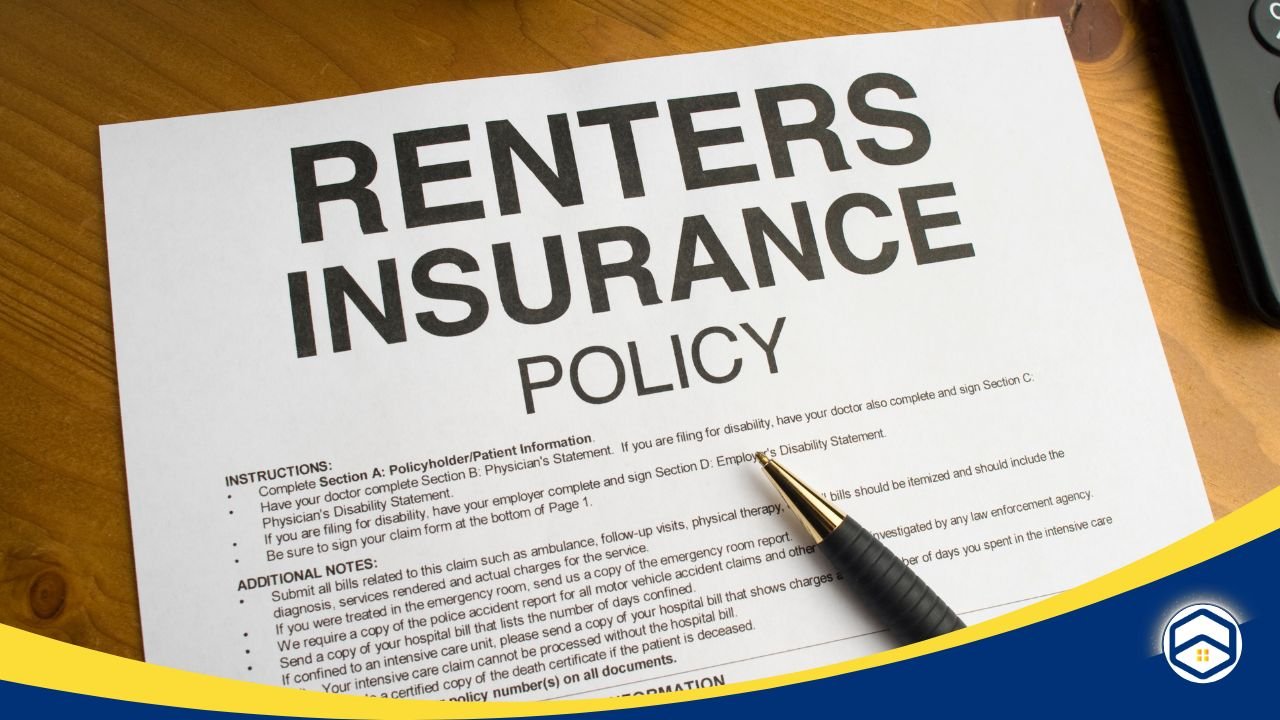Securing affordable Houston renter insurance is crucial for tenants looking to safeguard their belongings without overspending. In a city as vibrant and diverse as Houston, understanding rental rules, average costs, and essential tips can help you make smarter decisions. This guide is tailored to workers seeking budget-friendly coverage options, ensuring you get the best value for your money.
Why Renter Insurance Matters in Houston
If you’re renting a home in Houston, understanding the importance of renter insurance is a must. This type of insurance not only protects your belongings but also provides peace of mind in case of unexpected events. Let’s explore why it’s a vital investment:
- Affordable Protection: Policies start as low as $10–$20 per month, making it accessible even for budget-conscious tenants.
- Landlord Requirements: Some landlords in Houston require renter insurance as part of the lease.
- Liability Coverage: Protects you if someone gets injured in your rental unit.
Pro Tip: Considering Houston’s vulnerability to natural disasters like hurricanes and flooding, ensure your policy covers these risks. The Texas Department of Insurance provides guidance on what to consider when buying renter insurance.

Average Costs of Renter Insurance in Houston
Understanding the average costs of renter insurance in Houston can help you budget effectively. This section breaks down typical prices and the factors influencing them.
What You Can Expect to Pay
Most tenants in Houston pay between $15 and $25 per month, depending on their coverage needs and location. This amounts to $180–$300 annually, which is a small price to pay for comprehensive protection.
Factors Affecting Costs
- Location: Areas with higher crime rates or flood risks often come with higher premiums.
- Coverage Limits: Policies typically offer $30,000 in property coverage and $100,000 in liability coverage.
- Deductibles: Opting for a higher deductible can lower your premium but increases out-of-pocket costs during claims.
For more detailed insights, refer to Texas.gov’s guide on renter insurance.

Understanding Houston Rental Rules
Navigating Houston’s rental market requires familiarity with tenant rights and responsibilities. These rules not only protect tenants but also ensure fair dealings with landlords.
What You Should Know About Houston Rental Rules
- Security Deposits: Texas law requires landlords to return security deposits within 30 days after the lease ends, provided no damages exceed normal wear and tear.
- Maintenance Responsibilities: Landlords must address major repairs affecting health or safety, like broken air conditioning or plumbing issues.
- Eviction Notices: A minimum of 3 days’ notice is required before eviction, allowing tenants some time to address issues or vacate.
Pro Tip: For a complete overview of renter rights, check out the Texas Attorney General’s Landlord and Tenant Guide.

How to Choose the Best Affordable Houston Renter Insurance
Choosing the best affordable Houston renter insurance requires a careful evaluation of your specific needs and the options available in the market. To make an informed decision, follow this comprehensive guide:
1. Understand Your Coverage Needs
Before selecting a policy, take inventory of your belongings to estimate the value of everything you want to protect. Coverage needs will vary depending on factors like:
- Personal Property: Covers your furniture, electronics, clothing, and other personal items.
- Liability Protection: Protects you if you’re legally responsible for injuries to others or damage to their property.
- Additional Living Expenses (ALE): Helps cover costs like hotel stays if your rental becomes uninhabitable due to a covered event.
Example: If your total belongings are worth $20,000, you’ll need a policy offering at least that much in personal property coverage.
2. Compare Multiple Providers
Not all insurance providers are created equal. Comparing options ensures you’re getting the best price and most comprehensive coverage. When evaluating providers:
- Check Premiums and Deductibles: Lower premiums often come with higher deductibles. Find a balance that suits your budget.
- Review Coverage Options: Ensure the policy includes essential protections like water damage or additional living expenses.
- Examine Customer Reviews: Look for feedback on claim processing and customer service.
- Provider Reputation: Choose insurers with strong financial ratings and credibility.
Some popular renter insurance providers in Houston include:
- Lemonade: Known for its affordable rates and user-friendly digital experience.
- State Farm: Offers customizable policies and local agents.
- Geico: Provides discounts for bundling policies.
Use comparison tools like those available on Texas Department of Insurance to simplify this process.
3. Understand Houston-Specific Risks
Houston’s unique geography presents risks like hurricanes, flooding, and high humidity, which may not be covered under standard renter insurance policies. Consider:
- Flood Insurance: Most standard renter insurance policies exclude flooding. If you live in a flood-prone area, purchase additional flood insurance through providers like the National Flood Insurance Program (NFIP).
- Hurricane Coverage: Verify whether your policy includes windstorm or hurricane damage.
The FEMA Flood Map Service Center can help you determine your risk level.
4. Look for Discounts
Many insurance providers offer discounts to help tenants save on premiums. Here’s how you can qualify:
- Bundling Policies: Combine renter insurance with auto or life insurance.
- Safety Measures: Installing deadbolts, smoke alarms, and security cameras can reduce premiums.
- Claim-Free History: Demonstrating a history of no claims may qualify you for discounts.

5. Evaluate Customer Support and Claims Process
A low-cost policy won’t be beneficial if the claims process is slow or difficult. Evaluate the following:
- Claim Filing Options: Look for insurers offering app-based or online claims submissions for convenience.
- Customer Service: Test their responsiveness by contacting customer support with preliminary questions.
- Payout Speed: Check reviews or testimonials regarding how quickly claims are processed and paid.
6. Read the Fine Print
Always read your policy’s fine print to ensure there are no surprises when filing a claim. Pay attention to:
- Exclusions: Items or events not covered, such as earthquakes or luxury goods.
- Coverage Limits: The maximum payout for specific items, like jewelry or electronics.
- Deductible Terms: Amount you’ll pay out of pocket before insurance coverage kicks in.
7. Ask Questions
If you’re unsure about aspects of a policy, don’t hesitate to ask the insurer or an insurance advisor. Key questions include:
- “Does this policy cover flooding or hurricane damage?”
- “What are the exclusions in this policy?”
- “Are there additional fees or conditions for filing claims?”
8. Check for Local Guidance
For Houston-specific guidance, visit TexasLawHelp.org, which provides resources on renter insurance and tenant rights. You can also contact local agencies like the Texas Department of Insurance for support.
By following these steps, you’ll be equipped to find affordable Houston renter insurance that meets your needs without straining your budget.

Tips for Lowering Renter Insurance Costs
While affordable Houston renter insurance is already one of the most cost-effective ways to protect your belongings, there are several strategies to lower your premiums even further without sacrificing essential coverage. By following these practical tips, you can save money and still enjoy comprehensive protection.
1. Bundle Your Insurance Policies
One of the easiest ways to reduce the cost of your renter insurance is by bundling it with other policies, such as auto or life insurance. Many providers offer significant discounts for combining multiple policies under one account.
Example: If you already have car insurance, check if your provider offers a bundle discount for adding renter insurance. Companies like Geico and State Farm are known for providing such options.
2. Increase Your Deductible
The deductible is the amount you pay out of pocket before your insurance kicks in. Opting for a higher deductible can lower your monthly premium significantly.
Pro Tip: While a higher deductible saves money on premiums, ensure you can afford the out-of-pocket costs if you need to file a claim.
3. Install Safety and Security Features
Many insurance providers offer discounts for safety measures that reduce the likelihood of theft or damage. Consider adding the following to your rental:
- Smoke Alarms and Fire Extinguishers: Reduce fire risks.
- Deadbolt Locks: Enhance security.
- Security Cameras: Deter theft and vandalism.
Some insurers may also provide discounts for living in a gated community or a building with a 24-hour security system.
4. Avoid Unnecessary Coverage
While it’s important to have comprehensive coverage, some extras may not be relevant to your situation. For instance:
- If you don’t own luxury items like fine jewelry or collectibles, exclude these from your policy.
- Avoid unnecessary add-ons like coverage for high-value electronics unless you need them.
Example: Standard policies typically cover personal belongings up to $30,000. If your possessions are worth less, opt for lower coverage to save money.

5. Maintain a Good Claims History
Insurers reward tenants who maintain a clean claims history with lower premiums. Filing fewer claims shows you’re a low-risk customer, which may qualify you for discounts over time.
Tip: For minor damages or losses, consider paying out of pocket instead of filing a claim, as it can help you save in the long run.
6. Pay Annually Instead of Monthly
Many insurers offer discounts for paying your premium in a lump sum annually rather than in monthly installments. While this requires upfront payment, it often reduces the overall cost.
Did You Know? Some providers also waive administrative fees for annual payments, adding to your savings.
7. Compare Multiple Providers
Don’t settle for the first renter insurance policy you find. Use comparison tools or contact multiple providers to find the best deal.
- Compare premiums, deductibles, and coverage limits.
- Look for local providers in Houston that specialize in budget-friendly policies.
- Use tools like those provided by the Texas Department of Insurance to compare options.
8. Keep Your Coverage Updated
As your circumstances change, so should your renter insurance. Review your policy annually to ensure you’re not overpaying for unnecessary coverage. For example:
- If you’ve sold or replaced expensive items, adjust your coverage limits accordingly.
- If your living situation changes, such as moving to a safer neighborhood, inform your insurer.
9. Take Advantage of Employer or Group Discounts
Some employers and organizations partner with insurance companies to offer group discounts on renter insurance. Check with your employer or any associations you belong to for potential savings.
Example: Large employers in Houston may provide insurance benefits, including reduced rates for renter insurance.
10. Ask About Other Discounts
Most insurers offer a variety of discounts, so it’s worth asking your provider about additional ways to save. Some common discounts include:
- Loyalty Discounts: For staying with the same insurer for several years.
- Student Discounts: For full-time students renting apartments.
- Non-Smoker Discounts: For renters who avoid smoking, reducing fire risks.
11. Relocate Strategically
Your rental’s location impacts your premiums. Moving to a neighborhood with lower crime rates or away from flood zones can reduce your insurance costs. Use tools like the FEMA Flood Map Service Center to identify areas with lower flood risks.

By implementing these tips, you can secure affordable Houston renter insurance that fits your budget and provides the necessary protection. Small changes, like installing security features or paying annually, can add up to significant savings over time, ensuring you get the most value out of your policy.
FAQs About Houston Renter Insurance
1. Is Renter Insurance Mandatory in Houston?
No, but landlords often require it as part of their lease agreements. Always clarify this before signing a lease.
2. Does Renter Insurance Cover Flood Damage?
Standard policies don’t include flood damage. Tenants in flood-prone areas should consider additional flood insurance. The Federal Emergency Management Agency (FEMA) offers resources to find flood insurance providers.
3. Can I Share a Policy With a Roommate?
Yes, but ensure the policy covers both parties’ belongings and liabilities adequately.
4. What Does Renter Insurance Typically Cover?
Renter insurance provides protection for various aspects of your rental life. Here’s a breakdown of what most policies cover:
- Personal Property: Covers belongings like furniture, electronics, and clothing if damaged or stolen.
- Liability Coverage: Protects you from legal or medical costs if someone is injured in your home.
- Additional Living Expenses (ALE): Covers temporary housing costs if your rental becomes uninhabitable due to a covered event.
- Medical Payments to Others: Helps pay medical bills if a guest is injured in your rental, regardless of fault.
5. Can Roommates Share a Renter Insurance Policy?
Yes, some insurance providers allow roommates to share a renter insurance policy, but there are important factors to consider:
- Coverage Limits: Ensure the total coverage is sufficient to protect both your belongings and your roommate’s.
- Liability Issues: Sharing a policy may create complications if one roommate files a claim.
- Provider Policies: Not all insurers offer this option, so check with your provider.
6. What Happens If I Miss a Payment?
Missing a payment can result in a lapse in your coverage, leaving you unprotected. Most insurance providers offer a grace period, but it’s essential to address missed payments promptly to avoid policy cancellation.
- Consequences of a Lapsed Policy: You may face higher premiums when reinstating coverage or applying for a new policy.
- What to Do: Set up autopay or reminders to ensure timely payments.

Conclusion
Investing in affordable Houston renter insurance is a smart move for tenants looking to protect their belongings and gain peace of mind. With costs averaging as low as $15 per month, this small expense can safeguard against significant financial loss. By understanding Houston’s rental rules and leveraging cost-saving tips, you can make informed decisions that benefit both your wallet and security.
Take the next step toward securing your home and explore budget-friendly rental listings at HEXA PM. Protect your belongings and live worry-free in Houston today!











